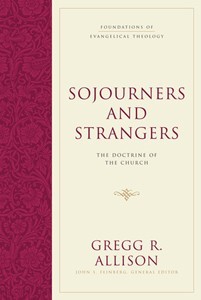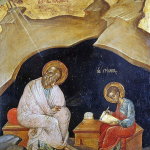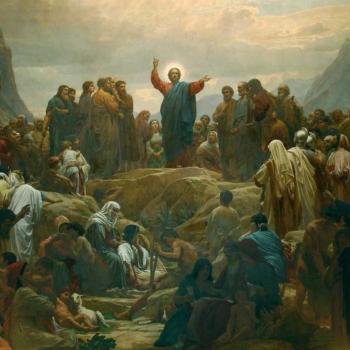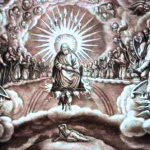 I’ve been slowly working my way through Gregg Allison’s fantastic work on the doctrine of the Church, Sojourners and Strangers, and I recently began reading and reflecting on his chapter on pastors/elders. While this entire section on the government of the Church might be the best portion of the book, I was particularly struck by his summary of the four biblical responsibilities of an elder—teaching, leading, praying, and shepherding (pp. 219-223).
I’ve been slowly working my way through Gregg Allison’s fantastic work on the doctrine of the Church, Sojourners and Strangers, and I recently began reading and reflecting on his chapter on pastors/elders. While this entire section on the government of the Church might be the best portion of the book, I was particularly struck by his summary of the four biblical responsibilities of an elder—teaching, leading, praying, and shepherding (pp. 219-223).
As a former pastor/elder who’ll in some ways always think of myself as one—whether or not I ever serve in that role ever again—this made me inspect my own heart. After all, the call to pastoring is more than a feeling or desire—it’s a massive, weighty responsibility.
Allison’s points here should force us all to ask, are you sure you’re called to be a pastor?
1. Teaching. While elders may teach in different ways—from the pulpit to the small group—“teaching refers to the communication of sound doctrine and the Christlike practice that flows from it.” Whether the lead preacher/teacher or the lay pastor who disciples a few people, the pastor/elder cannot afford to be theologically or hermeneutically shallow, nor can he afford to be an egghead academic who doesn’t truly practice what he preaches. As Paul instructed multiple times, pastors are called to pass down right doctrine and guard against false doctrine (Titus 2:1; 2 Tim. 1:13-14).
2. Leading. Though their authority is not absolute and unmitigated, pastors/elders are called to “engage together in leading church” in exercising authority over the various ministries and needs of the local church. Elders have strengths and weaknesses, but each should be willing and able to lead in certain areas under authority of Christ. Leadership is often not public, and I would argue that the unseen sacrifices and decisions are where true leadership happens.
3. Praying. While, of course, all Christians are called to pray, “If the apostles dedicated themselves ‘to prayer and ministry of the word’ (Acts 6:4), it would seem natural, once the apostles were no more, for the elders to assume these responsibilities.” There is a specific focus, as well, on elders praying for and interceding for the sick (James 5:13-15). This is mind-blowing: pastors/elders are quite literally the heirs to the apostolic mission, leading the charge in leading and building up God’s gospel emissary on Earth. No pressure, right? Yeah, we should pray a lot.
4. Shepherding. The word “pastor” evokes the idea of shepherding a flock of sheep, who’d be lost and in danger without their shepherd. Alongside the responsibilities above, “elders fulfill this shepherding responsibility by providing excellent (though imperfect) examples of Christlike living; nourishing the church’s members by teaching God’s Word; warning members of potentially dangerous doctrinal positions and of the people who spread them; addressing entrenched sinful situations and relationships in the church through the process of church discipline; and the like.” In other words, being a shepherd means standing in a place where both the sheep and the wolves might bite you.
—
Stay in touch! Email me at [email protected].
















